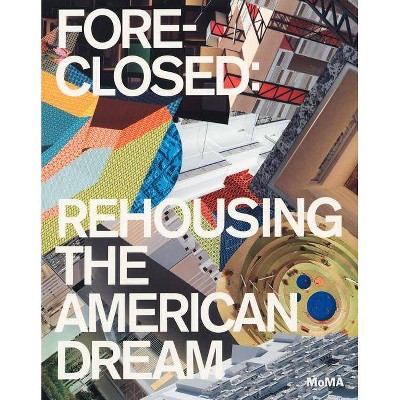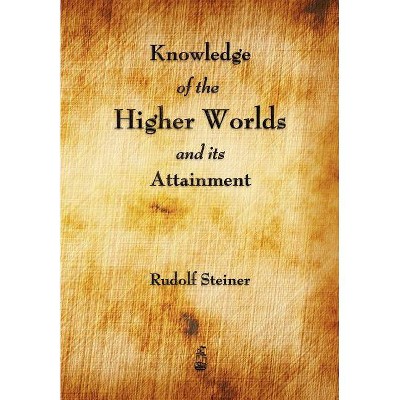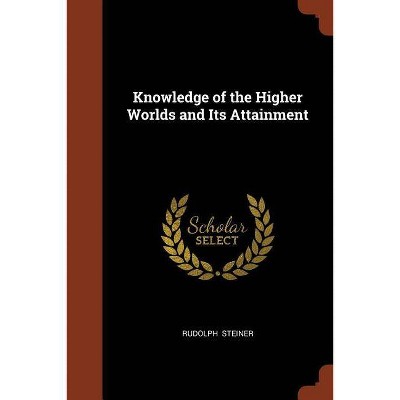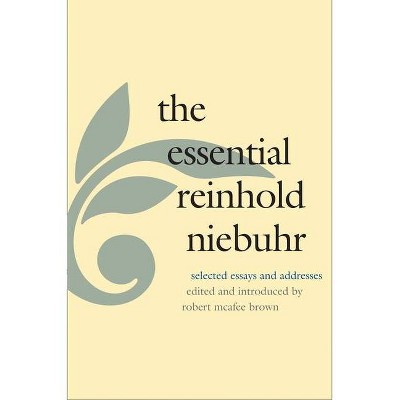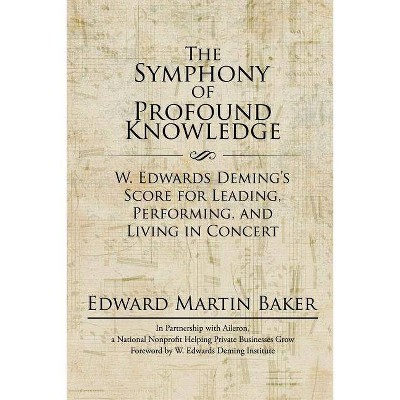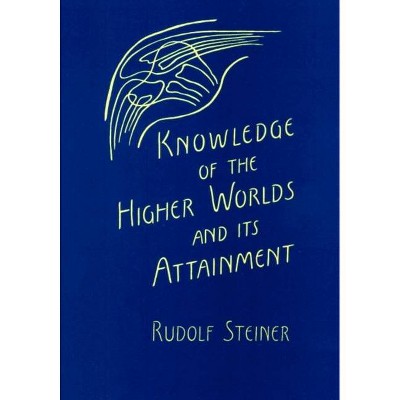Knowledge Worlds - by Reinhold Martin (Paperback)
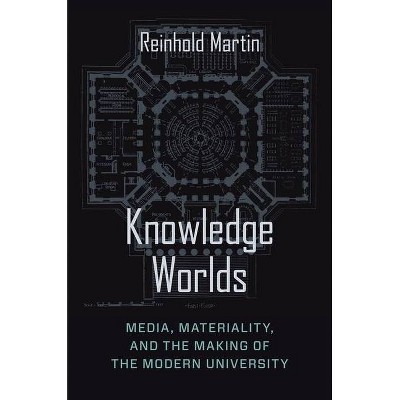
Similar Products
Products of same category from the store
AllProduct info
<p/><br></br><p><b> About the Book </b></p></br></br><i>Knowledge Worlds</i> reconceives the university as a media complex through which knowledge is made, conveyed, and withheld. Reinhold Martin argues that the material infrastructures of the modern university reveal the ways in which knowledge is created and reproduced in different kinds of institutions.<p/><br></br><p><b> Book Synopsis </b></p></br></br>What do the technical practices, procedures, and systems that have shaped institutions of higher learning in the United States, from the Ivy League and women's colleges to historically black colleges and land-grant universities, teach us about the production and distribution of knowledge? Addressing media theory, architectural history, and the history of academia, <i>Knowledge Worlds</i> reconceives the university as a media complex comprising a network of infrastructures and operations through which knowledge is made, conveyed, and withheld. <p/>Reinhold Martin argues that the material infrastructures of the modern university--the architecture of academic buildings, the configuration of seminar tables, the organization of campus plans--reveal the ways in which knowledge is created and reproduced in different kinds of institutions. He reconstructs changes in aesthetic strategies, pedagogical techniques, and political economy to show how the boundaries that govern higher education have shifted over the past two centuries. From colleges chartered as rights-bearing corporations to research universities conceived as knowledge factories, educating some has always depended upon excluding others. <i>Knowledge Worlds</i> shows how the division of intellectual labor was redrawn as new students entered, expertise circulated, science repurposed old myths, and humanists cultivated new forms of social and intellectual capital. Combining histories of architecture, technology, knowledge, and institutions into a critical media history, Martin traces the uneven movement in the academy from liberal to neoliberal reason.<p/><br></br><p><b> Review Quotes </b></p></br></br><br>In this sweeping account of the university's ivied halls, Martin lays bare the tangled underpinnings and conflicting ideals of higher education in America, across private and public, colleges and universities, and from liberal to neoliberal eras.--Lisa Gitelman, author of <i>Paper Knowledge: Toward a Media History of Documents</i><br><br>Reinhold Martin's <i>Knowledge Worlds</i> combines critical thinking with a rare sense for the entangledness of inconspicuous material things. By meticulously studying the genealogies of specific architectural sites, Martin teaches us to understand the worldliness of knowledge--a worldliness that consists of material infrastructures. As it weds infrastructure studies with media theory, this book not only takes architectural history to a new level but also discovers nothing less than the outline of a media philosophy that understands media as environments and vice versa. A milestone.--Bernhard Siegert, author of <i>Cultural Techniques: Grids, Filters, Doors, and Other Articulations of the Real</i><br><br>Combining historical detail with conceptual clarity, <i>Knowledge Worlds</i> shows how the modern university became the most important technology of the nineteenth and twentieth centuries by organizing material objects and humans toward common ends. In doing so, Martin has written the first media history of the university.--Chad Wellmon, author of <i>Organizing Enlightenment: Information Overload and the Invention of the Modern Research University</i><br><br>In this remarkable book, Reinhold Martin completely redefines what architectural history can do. The modern university emerges here as a media complex made not only of brick and stone but also of acoustic tiles and lighting fixtures, electric wires and handheld bells, lecterns and seminar tables. In a narrative that spans from the late Enlightenment to the twentieth century, Martin demonstrates with painstaking precision how this machinery functioned to suppress some voices and amplify others. What the machinery of higher education ultimately produced, it turns out, were spirits and ghosts of various kinds--of liberalism, neoliberalism, humanism, and that thing called the 'Western canon.' We are still haunted by those ghosts today, and this astoundingly original book tells us how we got here.--Zeynep Çelik Alexander, author of <i>Kinaesthetic Knowing: Aesthetics, Epistemology, Modern Design</i><br><p/><br></br><p><b> About the Author </b></p></br></br>Reinhold Martin is professor of architecture in the Graduate School of Architecture, Planning, and Preservation at Columbia University, where he directs the Temple Hoyne Buell Center for the Study of American Architecture. He is the author of <i>The Organizational Complex: Architecture, Media, and Corporate Space</i> (2003); <i>Utopia's Ghost: Architecture and Postmodernism, Again</i> (2010); and <i>The Urban Apparatus: Mediapolitics and the City</i> (2016).
Price History
Cheapest price in the interval: 35.49 on October 22, 2021
Most expensive price in the interval: 35.49 on December 20, 2021
Price Archive shows prices from various stores, lets you see history and find the cheapest. There is no actual sale on the website. For all support, inquiry and suggestion messagescommunication@pricearchive.us
